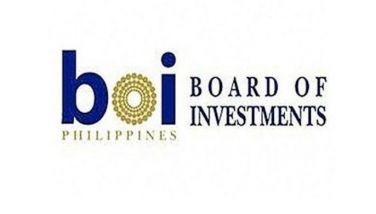Banks told to toughen up vs money laundering

MANILA, Philippines — The Bangko Sentral ng Pilipinas (BSP) has instructed banks and financial institutions to strengthen their anti-money laundering/ counter-terrorist financing (AML/ CTF) frameworks through improved transaction monitoring and reporting systems.
BSP Deputy Governor Chuchi Fonacier said the regulator has approved the guidance paper for an effective AML/CTF transaction monitoring system for BSPsupervised financial institutions.
“BSFIs are expected to consider this guidance paper in the design and continuing reinforcement of their transaction monitoring and reporting systems as a key component of their overall AML/CTF framework,” she said.
Fonacier also said that the paper, approved through Resolution 490 issued by the monetary board on April 13, presents the key results of the thematic review on transaction monitoring system.
“It aims to provide sound practices and practical insights covering transaction monitoring system and other related facets, such as ongoing customer due diligence, alerts/ case management, and suspicious transaction investigation and reporting, across different types of BSFIs,” she said.
In the Suspicious Transaction Report Quality Review for 2017- 2020 by the Anti-Money Laundering Council (AMLC), STRs exponentially increased since 20132, with universal and commercial banks still accounting for a majority of the STR filings for BSFIs.
Nonetheless, it was observed, among others, that the share of big banks to total STRs decreased to 51 percent in 2020 from 78 percent in 2017, while the share of non-bank financial institutions (NBFIs), particularly pawnshops and money service businesses, constantly increased to 29 percent in 2023 from 11 percent in 2017.
Likewise, the share of electronic money issuers also significantly increased to 14 percent from two percent, indicating that BSFIs are progressively learning to identify and detect the various threats in the financial system.
Based on the results of the thematic review, the BSP said the guidance paper highlights good industry practices, in light of the governing global standards and regulatory expectations, as well as identifies areas where further work is needed. “This document aims to inform, guide, and support the BSFIs in the design and continuing reinforcement of their transaction monitoring and reporting systems as a key component of their overall AML/CTF framework,” the BSP added.
According to the central bank, transaction monitoring is one of the pillars of a sound AML/CTF framework and is considered as one of the most challenging to implement.
It added that transaction monitoring system needs to be dynamic given the diverse and evolving profile of customers, high volume and complexity of financial products, activities or transactions, wide accessibility of available channels as well as the cross-border nature of transactions in the financial system.
The BSP said the board of directors and senior management should recognize the intrinsic value of transaction monitoring system as a critical risk management and mitigation tool against risks posed by money laundering as well as terrorism and proliferation financing, and other financial crimes.
“The board of directors and senior management play a pivotal role in the effective execution of TMS and related controls. This can be demonstrated by providing a robust oversight with clearly defined risk appetite, a transaction monitoring framework instilling risk awareness and ownership, and sufficient and skilled manpower,” it said.
Paris-based Financial Action Task Force (FATF) reincluded the Philippines in the gray list in June 2021 for failing to address the remaining deficiencies in its regime to counter money laundering as well as terrorist and proliferation financing.
- Latest
- Trending





























